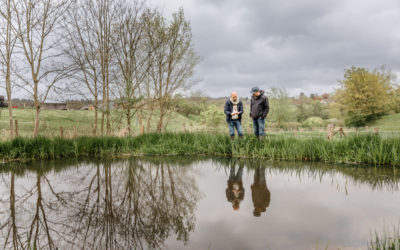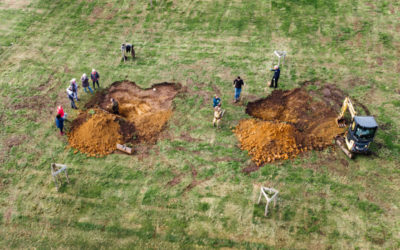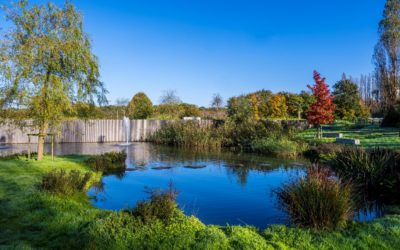On the way to 100 ponds in Rochefort!
Parking ULB – campus Solbosch
The project
The ULB, winner of the Climate call for projects in 2024, has reallocated part of the P3 (Janson) car park on the Solbosch campus to create a new, user-friendly, demineralised space covering 1,180 m², of which 400 m² has been transformed into green, permeable surfaces. This reallocation has increased the permeable surface area of the developed zone by 30%, enabling the local infiltration of 300 m³ of water and improving biodiversity in the area, thereby furthering the aim of connecting the campus’s green spaces to strengthen ecological corridors.
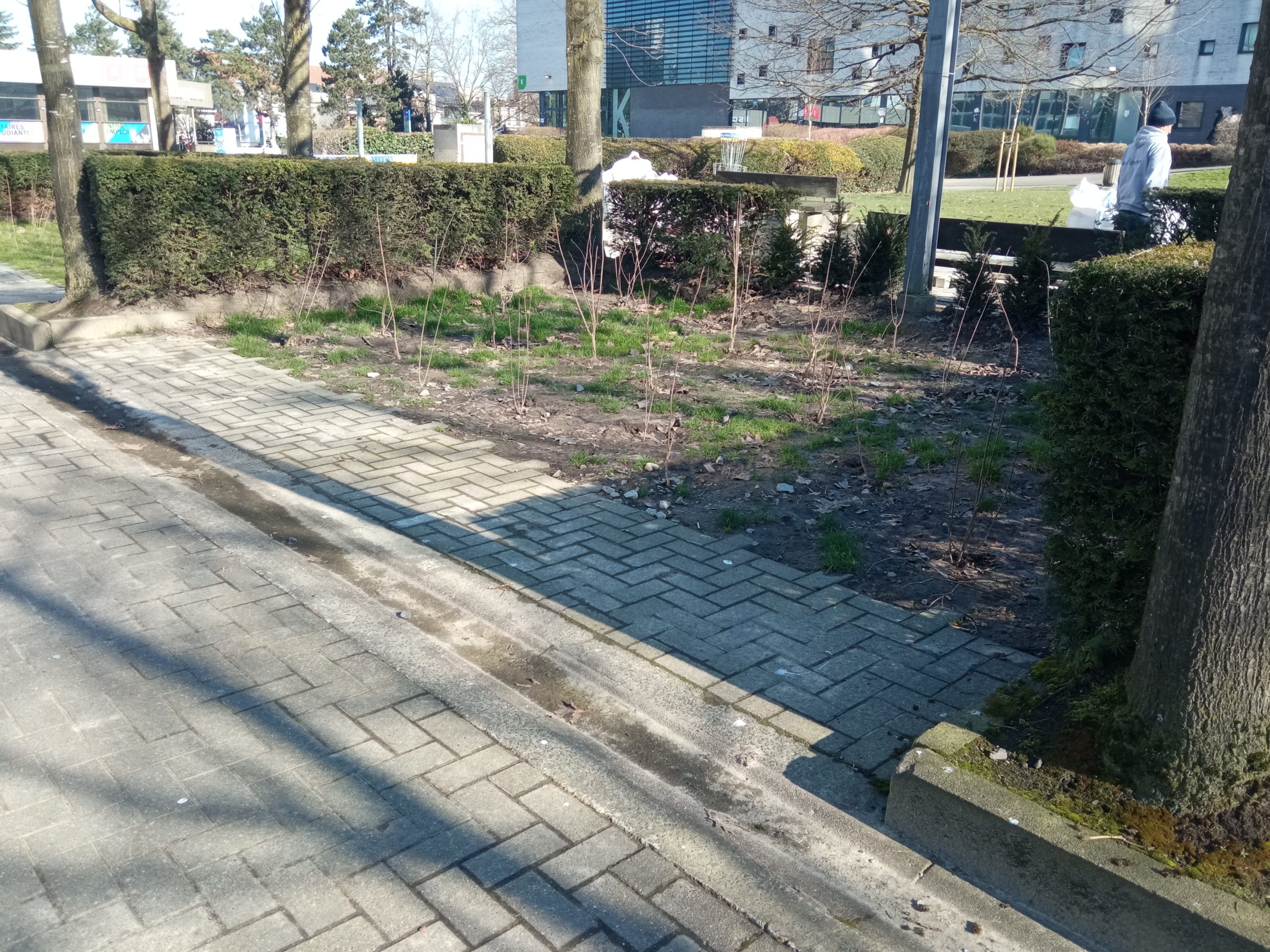
Project location
Contribution(s)
Project costs
Participant(s)
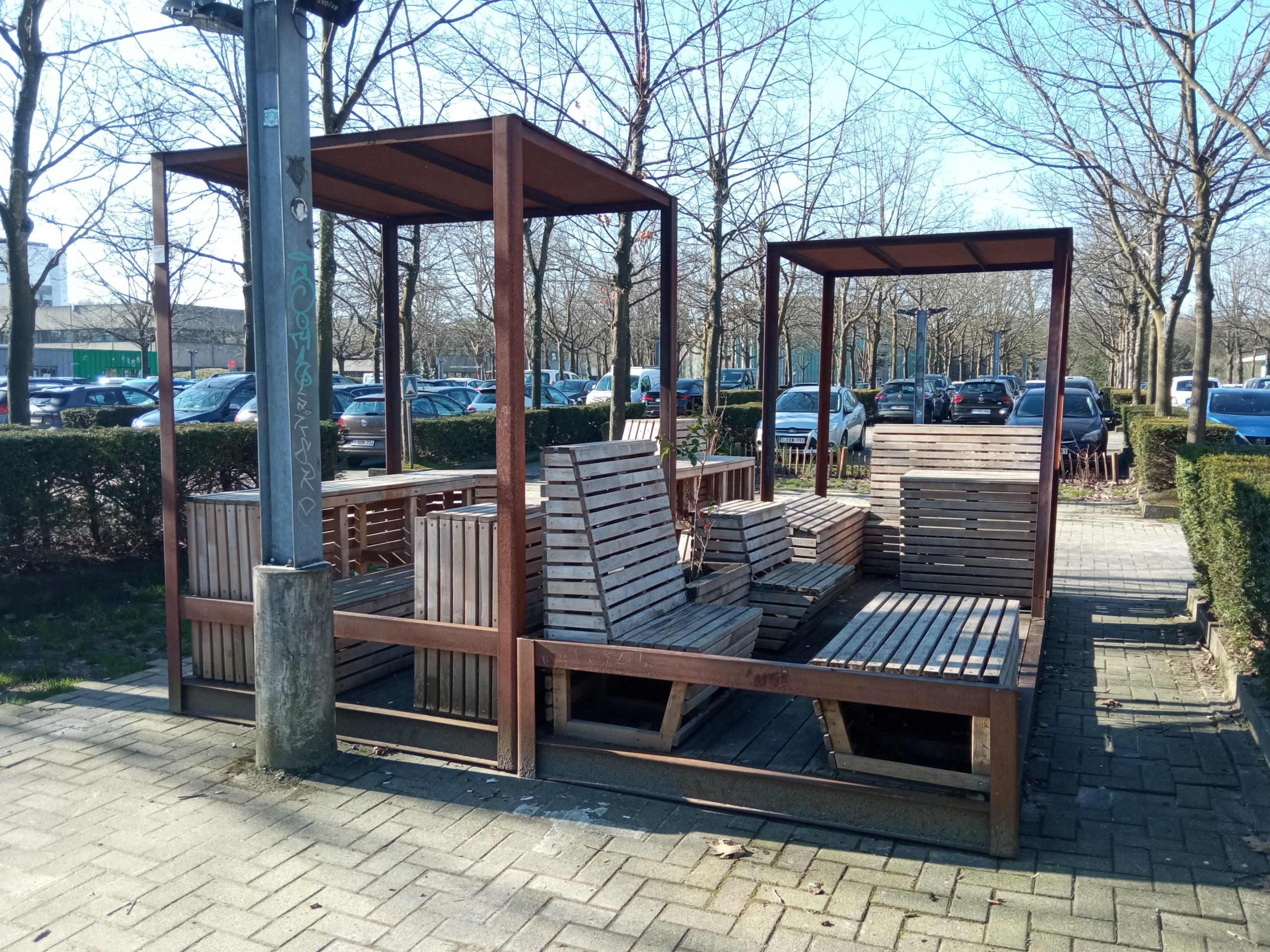
This project was made possible thanks to a grant from the City of Brussels for projects related to water and biodiversity. To stay informed about the City’s water policy, visit their website. Green and convivial spaces were conceptualised through participatory workshops with students.
How are the criteria of the objective met?
Nature-based solutions
- Use nature/natural processes that support biodiversity to address the challenges related to climate change, water management (including flood management) and land degradation;
- Have respect for and/or improve the specific environmental and ecological characteristics of the area (e.g. the topography, the type of landscape, the local plant and animal life, …);
- Incorporate those natural processes into the surrounding area and environment;
- Strengthen ecological connectivity between nature-based solutions and surrounding natural areas.
Possible initiatives in which the project is involved :
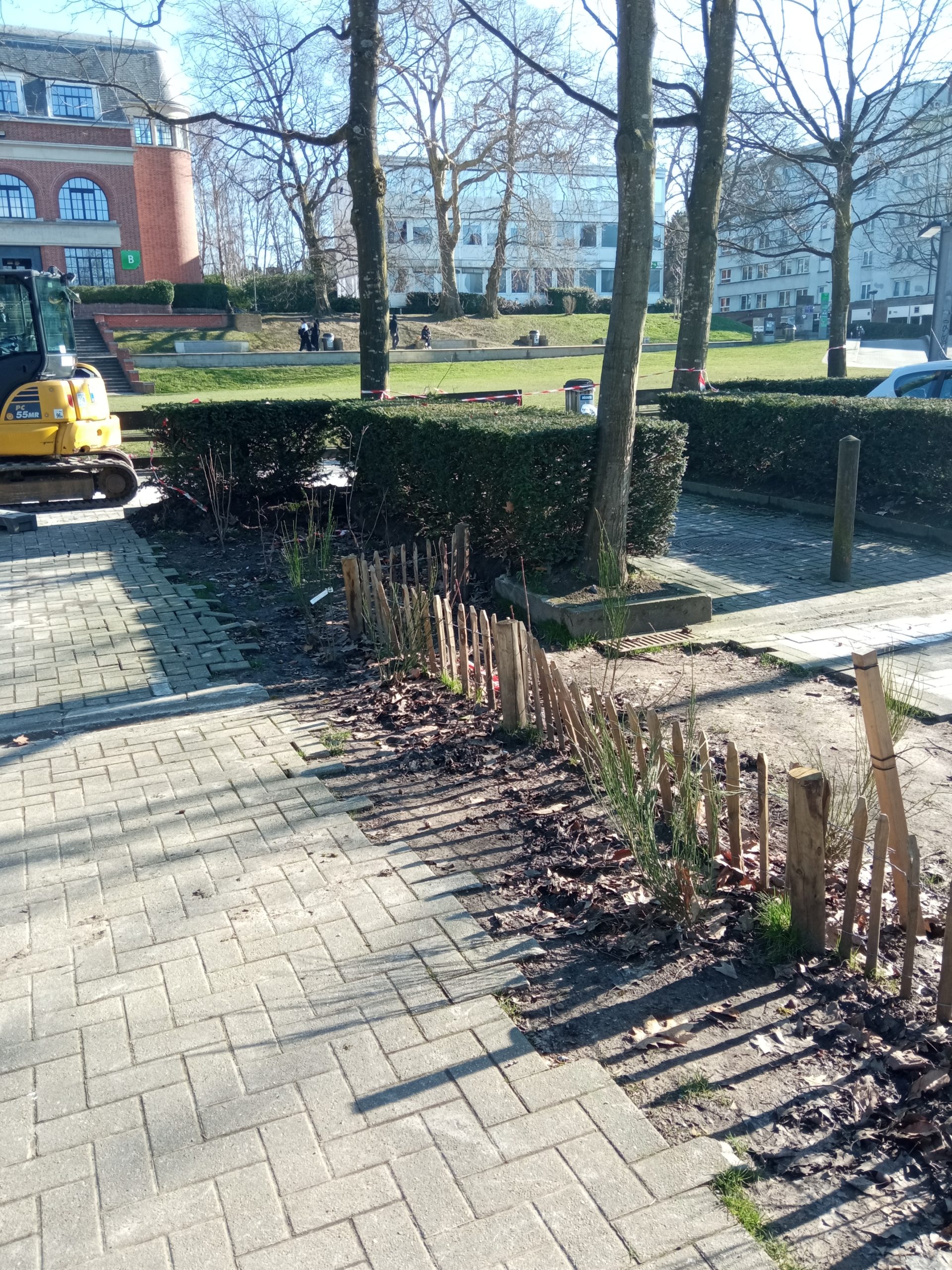
Long-term maintenance
Still maintained by the campus as it is a communal space.
Benefits
In recent years, Brussels has been increasingly confronted with episodes of heavy rainfall. The resulting floods serve as a reminder that our current, highly mineralised infrastructure is unable to absorb and effectively manage these volumes of water. In a highly mineralised city, every drop that does not seep into the ground must be drained away through the sewers, which quickly leads to overflows, as in Laeken or the North district. See the website of the City of Brussels for more information.
Other projects linked to the objective: "Nature-based solutions"
Ponds in Amay
Towards a total of 15 participatory projects for ponds in Amay!
Coca-Cola Europacific Partners: site in Wilrijk
Coca-Cola invests in a sustainable future by conserving water, restoring nature and strengthening biodiversity.
